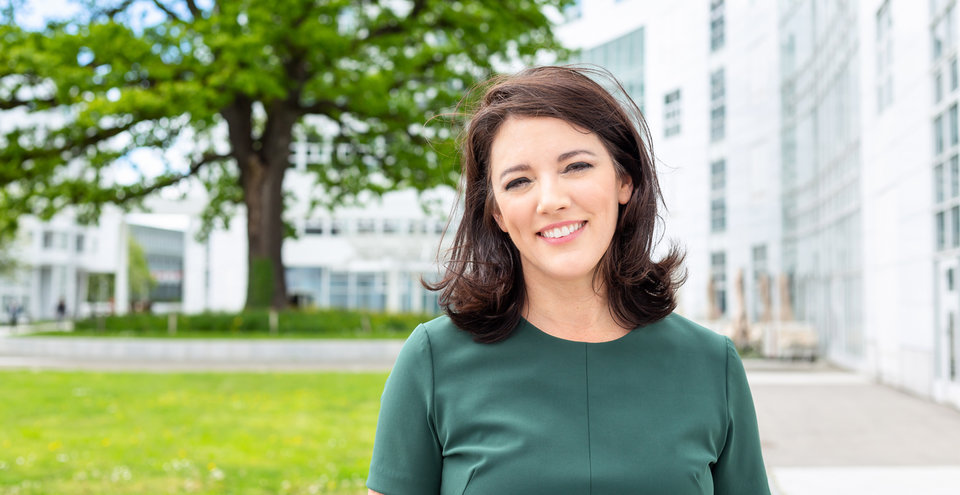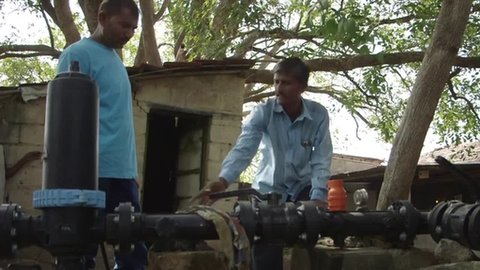A letter from
the CEO

A letter
from the
CEO
It’s been only two-and-a-half years since we launched Laudes Foundation to tackle the dual crises of climate breakdown and inequality, yet our global context has dramatically changed.
Read more
CEO
Letter
Today, we are facing a multitude of cascading crises – climate, covid, and now, conflict – which steal the attention of business leaders and policymakers. And these crises accelerate others – from the race to energy security to biodiversity loss and an impending (and horrific) food catastrophe.
In such a context, we need brave and bold action more than ever before.
Since 2020, Laudes has been working with more than 300 partners to encourage such action. Using our flexible, philanthropic capital, we have supported organisations across the globe who are working to both inspire and challenge business and finance to change. In our second year of activities, we provided more than EUR 70 million across 126 partnerships (of which nearly 40% provided core support) – all to try to influence the mindsets, rules and power structures which are embedded in our global economic system and reinforce the systemic challenges we are working to address.
This year’s report shares some early successes in our approach with partners across the fashion and built environment industries and finance and capital markets sector.
At the same time, we realise we are working in a highly volatile context, one that leads us to question some of the very assumptions underlying our theory of change. Upon reflecting on our work in 2021, six things have become clearer:
Our job is getting harder. The protracted conflict in Ukraine is pitting short-term energy security against the longer-term investment in climate action. This is not unexpected. We humans are, by design, short-termist. And if climate action does not address these short-term needs (food, heating and cooling, dignified livelihoods), we will fail. This is why, at Laudes, we are supporting visionary economists and practitioners through partnerships with UCL’s Institute for Innovation and Public Purpose, the New Economics Foundation, Doughnut Economics Action Lab, Partners for a New Economy, and the Centre for the Understanding of Sustainable Prosperity, among others, who are exploring ways to bring more equity and justice into the energy transition.
We cannot solve one without the other. We refer to the dual crises for a reason. Climate breakdown is, above all, a social challenge. Therefore, we must address the deeply ingrained inequality (of incomes, of opportunity, of generations) we see across our societies and strengthen the agency of workers, producers, and communities in order to address it. Because we are all connected. As Dr. Martin Luther King said, “It really boils down to this: that all life is interrelated. We are all caught in an inescapable network of mutuality, tied into a single garment of destiny. Whatever affects one directly, affects all indirectly.”
At Laudes, we are working to enable those most impacted by climate breakdown to be heard via our partnerships with organisations such as Frank Bold, Action for Social Advancement, and the Institute for Human Rights and Business, to name a few. And we are enabling producer communities to improve their livelihoods and protect their land – all in harmony with nature - through our landscapes programmes with IDH, EcoAgriculture Partners, and the Landscape Finance Lab.
Business and finance can 'be the change' we need. As we say in our mission statement, we want to inspire and challenge industry to harness its power for good. Business is good at unleashing immense creativity and innovation to solve what seems to be unsolvable. And in larger numbers, this can be powerful, as we saw at COP26, where the private sector stepped up its ambition level (for example, the 450 financial institutions joining the Glasgow Financial Alliance for Net Zero, GFANZ). We too are working to bring together unlikely allies in business and finance. One example is our work with Built by Nature, a new network bringing together diverse stakeholders to accelerate the timber building transformation (and address the issue of the carbon footprint of buildings and infrastructure projects before they are operational, which makes the built environment one of the largest carbon emitters, contributing almost 40% of global energy related carbon emissions).
But this requires rules with teeth… As Donatella Meadows, co-author of the eerily prescient ‘Limits to Growth’ said, “If you want to understand the deepest malfunctions of systems, pay attention to the rules, and to who has power over them.” Rules matter, and we are increasingly working with partners that can influence the policies being crafted as we respond to and rebound from the pandemic. Over the past year, we’ve seen many points of light, from the ambitious (yet relatively undefined) European Green Deal, to specific legislation that enforces human rights and environmental due diligence. And our partners, such as the International Trade Union Confederation, the Institute for European Environmental Policy, Finance Watch, E3G, the Club of Rome, ECOS, the Fair Trade Advocacy Office, and Anti-Slavery International, continue to chip away at this, working to ensure the legislation being crafted is done in a holistic way and ultimately benefits those workers, producers, communities and families who need it most.
It also requires a sense of urgency. The ‘3C crisis’ – climate, Covid-19, conflict – actually has another c: complacency. In this decisive decade, we cannot afford to be complacent. We cannot afford not to act. But we are not yet seeing policymakers, business leaders and investors incorporating the sense of urgency that cascading crises demand. At Laudes, we have been addressing this in two ways. First, our work in supporting mechanisms that create more transparency, and therefore accountability, endeavours to increase pressure for action – whether it’s in the fashion industry (via Mapped in Bangladesh’s public database of producers) or in the built environment (via Metabolic’s tools to accelerate circularity).
Secondly, we continue to try to influence the narrative by harnessing the power of the media and influencer networks to strengthen public discourse and accelerate action and impact. Through our partnerships with the Pulitzer Center, Thomson Reuters Foundation, Oxford Climate Journalism Network, Outrage + Optimism, and others, we are building capacity in newsrooms, equipping editors, reporters, producers, commissioners, and influencers to create scientifically informed public debates and persuade individuals to modify their behaviour, change their mindsets and hold corporations and governments to account over policy decisions and outcomes, while calling for changes in practice.
“It’s the economy, stupid.” Specifically, it is the global economic system – and the ideas and incentives within it – that needs a rethink. This past year, we continued to build our global economic systems map, which now contains a built environment, a finance and a fashion layer. The map includes more than 140 self-identified organisations across academia and civil society striving to create systems change. And we used it to enable the Building to COP effort by our partners, working toward the systemic shift we need to see in cities, regions, and the broader built environment.
And this is where we, as a philanthropic investor, can play an important role. Granted, philanthropic giving is miniscule vis-à-vis the trillions needed for a just energy transition, and only an estimated 2% of philanthropic funding goes to climate mitigation. Yet, philanthropy can do things that other sources of finance cannot. It can take risks (although more could be done here), it can embrace a long (even multi-generational) time horizon, it can fund new ideas (even if they seem outlandish), and it can bring unlikely allies together.
This is what we did just before COP26, when we brought together some of the world’s biggest philanthropic funders of climate action with experts and practitioners from the public and private sectors, and civil society leaders, to align efforts and identify areas where climate finance and philanthropic collaboration can accelerate decarbonisation in a manner that preserves and protects social equity. Building alliances and the sharing of knowledge, ideas and best practice, is what all funders should strive for.
In the context of deepening cascading crises, we are stronger together.
2021
121
new partnerships
signed
68m
EUR committed in grants
to partners
40%
of grants provided
core support
121
EUR co-finance unlocked
from other donors
Leslie Johnston
Chief Executive Officer
Laudes Foundation


Connect with Leslie Johnston